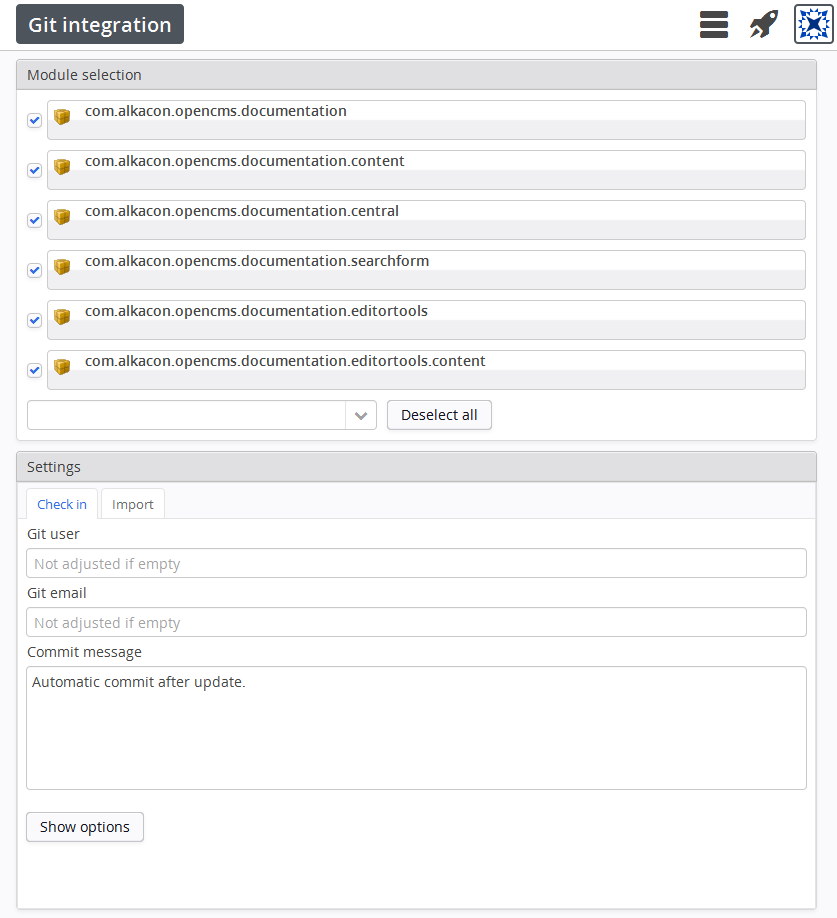Checking in changes made on modules in OpenCms to a version control system can be quite cumbersome. The OpenCms Git integration tackles that problem. You simply configure where your repository is and which modules you want to check in or check out and install from the repository. Then the workplace app "Git integration" provides an easy way to check in or check out and install modules.
Via the Git integration you can perform check in and (re-)installation of modules from within the OpenCms and in just a few clicks. The figure shows the dialog for the tool when configured correctly.
